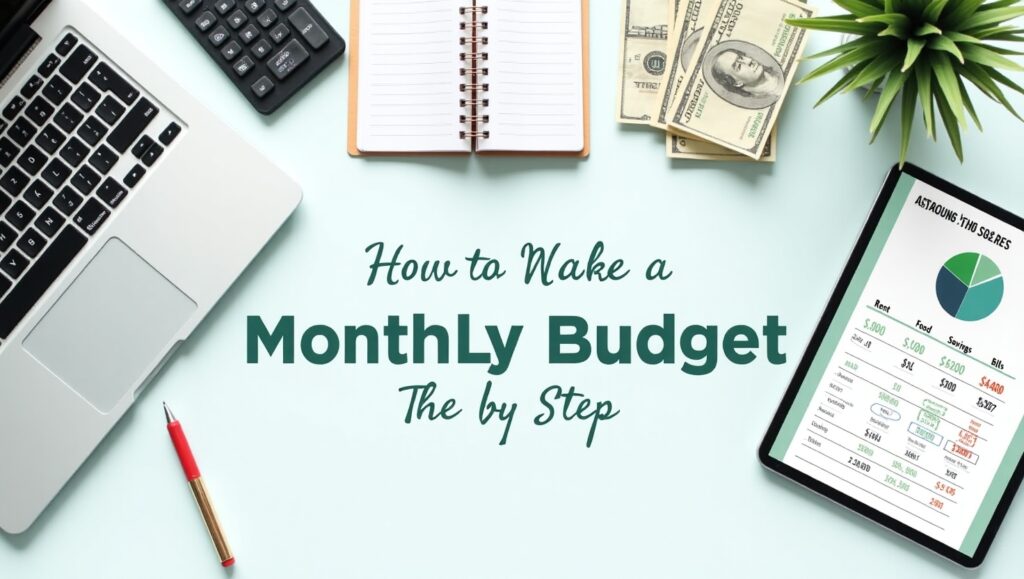Want to take control of your money, stop overspending, and start saving? It all starts with one powerful habit: budgeting.
A monthly budget helps you see where your money goes, avoid debt, and make progress toward your financial goals. Don’t worry — you don’t need to be a math wizard or accountant to do it.
Here’s a simple step-by-step guide to creating a monthly budget that actually works:
✅ Step 1: Know Your Income
Start by figuring out your total monthly income after taxes. Include:
- Salary (after tax)
- Freelance or side hustle earnings
- Rental income
- Any other cash inflows
💡 Use your average if your income varies month to month.
✅ Step 2: Track Your Expenses
Break your expenses into fixed and variable categories.
Fixed Expenses (same every month):
- Rent or mortgage
- Car payment
- Insurance
- Subscriptions
Variable Expenses (change month to month):
- Food
- Utilities
- Fuel/transport
- Entertainment
- Shopping
🔍 Look at bank statements or budgeting apps like Mint or YNAB to find your averages.
✅ Step 3: Categorize and Prioritize
Organize your expenses into 3 groups:
- Needs – Rent, groceries, bills
- Wants – Dining out, entertainment, shopping
- Savings & Debt – Emergency fund, investments, loan payments
Use the 50/30/20 Rule as a guide:
- 50% for needs
- 30% for wants
- 20% for savings or debt
✅ Step 4: Set Spending Limits
Now assign spending limits to each category based on your income.
For example:
- Rent: $900
- Food: $400
- Entertainment: $150
- Savings: $300
Make sure your total expenses don’t exceed your income.
📊 Tip: Use a spreadsheet or free app to automate the math.
✅ Step 5: Track & Adjust Every Week
A budget is not “set and forget.” Track your spending weekly and compare it to your plan. Make adjustments as needed.
- Overspent on food? Cut entertainment next week.
- Got extra income? Add more to savings or debt.
🎯 Goal: Stay aware and flexible without giving up.
✅ Step 6: Build a Habit
Budgeting is a habit, not a one-time task. Set a monthly “Money Day” to review your spending, adjust your budget, and set goals for the next month.
🧠 Final Thoughts
Creating a monthly budget gives you freedom, not restriction. It helps you make intentional decisions about your money, build savings, reduce stress, and reach your goals faster.
💬 Need a free budget template or app suggestion? Just ask — I’ll help you get started today!


